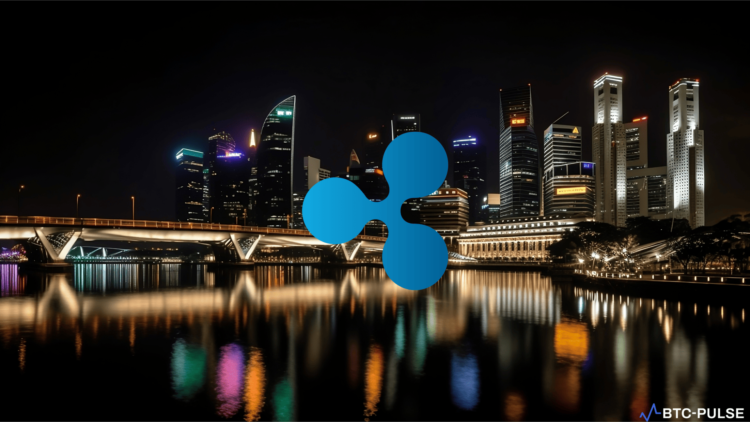In-Principle Approval: A Catalyst for Ripple’s Expansion
Blockchain-based payments firm Ripple has achieved a significant milestone, obtaining in-principle regulatory approval from Singapore’s Monetary Authority of Singapore (MAS) to offer digital asset payments and token products within the city-state. This comes as a significant push to Ripple’s “On-Demand Liquidity” (ODL) service.
Bolstering On-Demand Liquidity
The approval, which Ripple confirmed on June 22, will empower its subsidiary, Ripple Markets Asia Pacific, to augment its On-Demand Liquidity (ODL) service. The ODL is a unique service, enabling Ripple’s customers to globally move XRP without banks acting as intermediaries.
Singapore: A “Prominent Gateway” for Ripple
Ripple’s CEO Brad Garlinghouse lauds the MAS for its forward-thinking and pragmatic approach to cryptocurrency-related services. Garlinghouse highlighted that Singapore will serve as a “prominent gateway” for Ripple’s business activities across the Asia Pacific region.
Singapore’s Regulatory Leadership
According to Ripple’s Chief Legal Officer, Stu Alderoty, Singapore’s proactive approach is setting a precedent for other regulatory bodies looking to formulate a lucid taxonomy and licensing framework.
Expanding Customer Reach
The in-principle regulatory approval from MAS is a strategic advantage for Ripple as it aims to cater to its forward-thinking clients keen on leveraging blockchain and cryptocurrency technologies.
Legal Obstacles: A Ripple in the Water
While Ripple’s path to regulatory compliance in Singapore was relatively unimpeded, it has faced some legal challenges elsewhere, especially from the U.S. Securities Exchange Commission (SEC).
Fostering Central Bank Partnerships
Ripple has also been working on building relationships with central banks worldwide, having recently entered a partnership with Colombia’s central bank, Banco de la República, to experiment with a central bank digital currency on its XRP Ledger.
Ripple’s Growth and Future Prospects
Ripple’s recent in-principle regulatory approval by Singapore’s MAS signifies the potential for significant expansion and innovation in the digital asset space. The firm’s capacity to increase its On-Demand Liquidity service showcases the growing acceptance of blockchain technology in traditional financial sectors.
Notwithstanding legal challenges, particularly in the United States, Ripple continues to forge strategic partnerships with central banks and financial institutions worldwide. These partnerships, coupled with the recent regulatory win in Singapore, put Ripple in an advantageous position to become a prominent player in the digital asset ecosystem globally.
As we move forward, Ripple’s progress will be closely watched as an indicator of how cryptocurrency and blockchain technology can potentially reshape the landscape of international finance.










